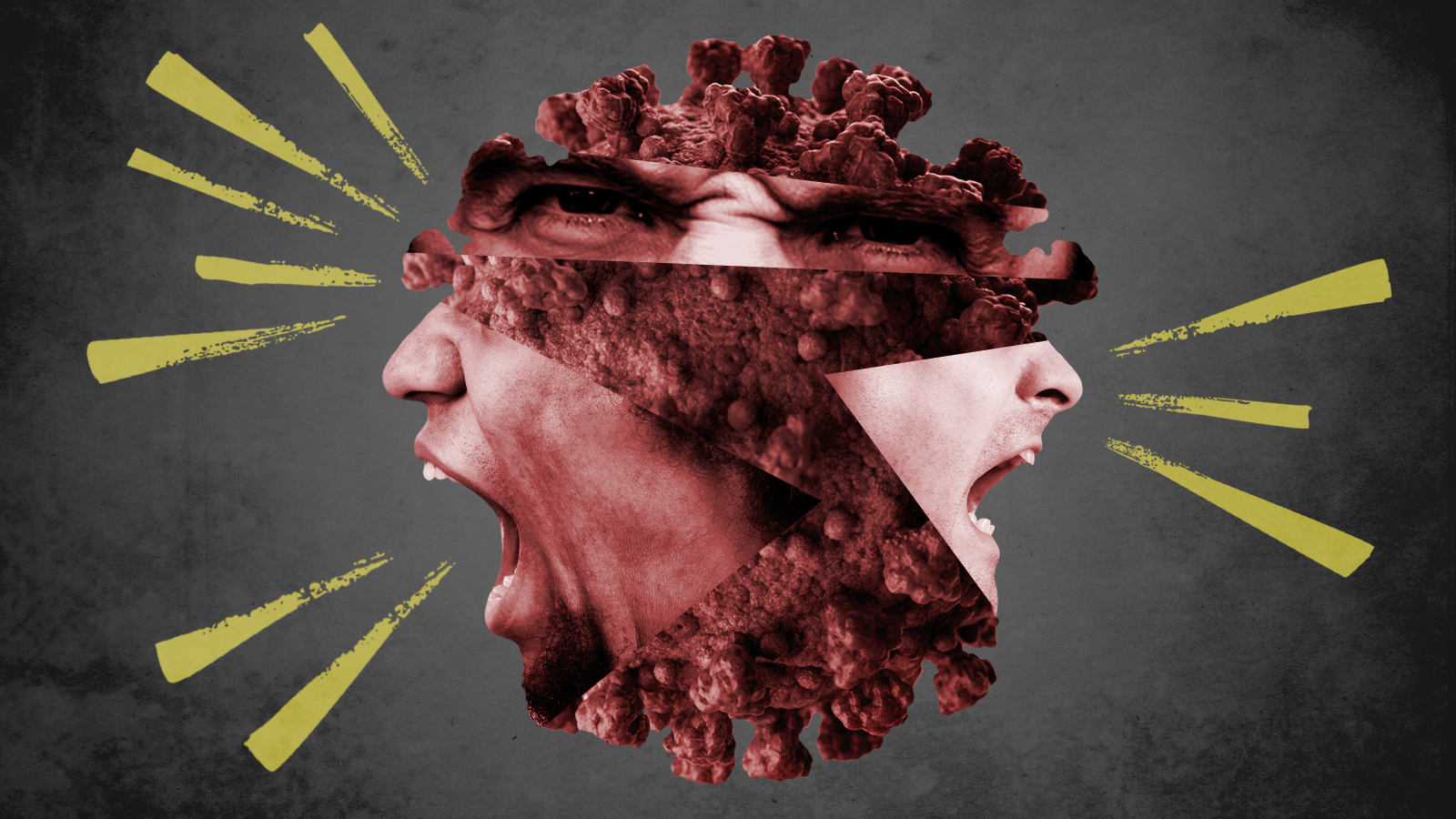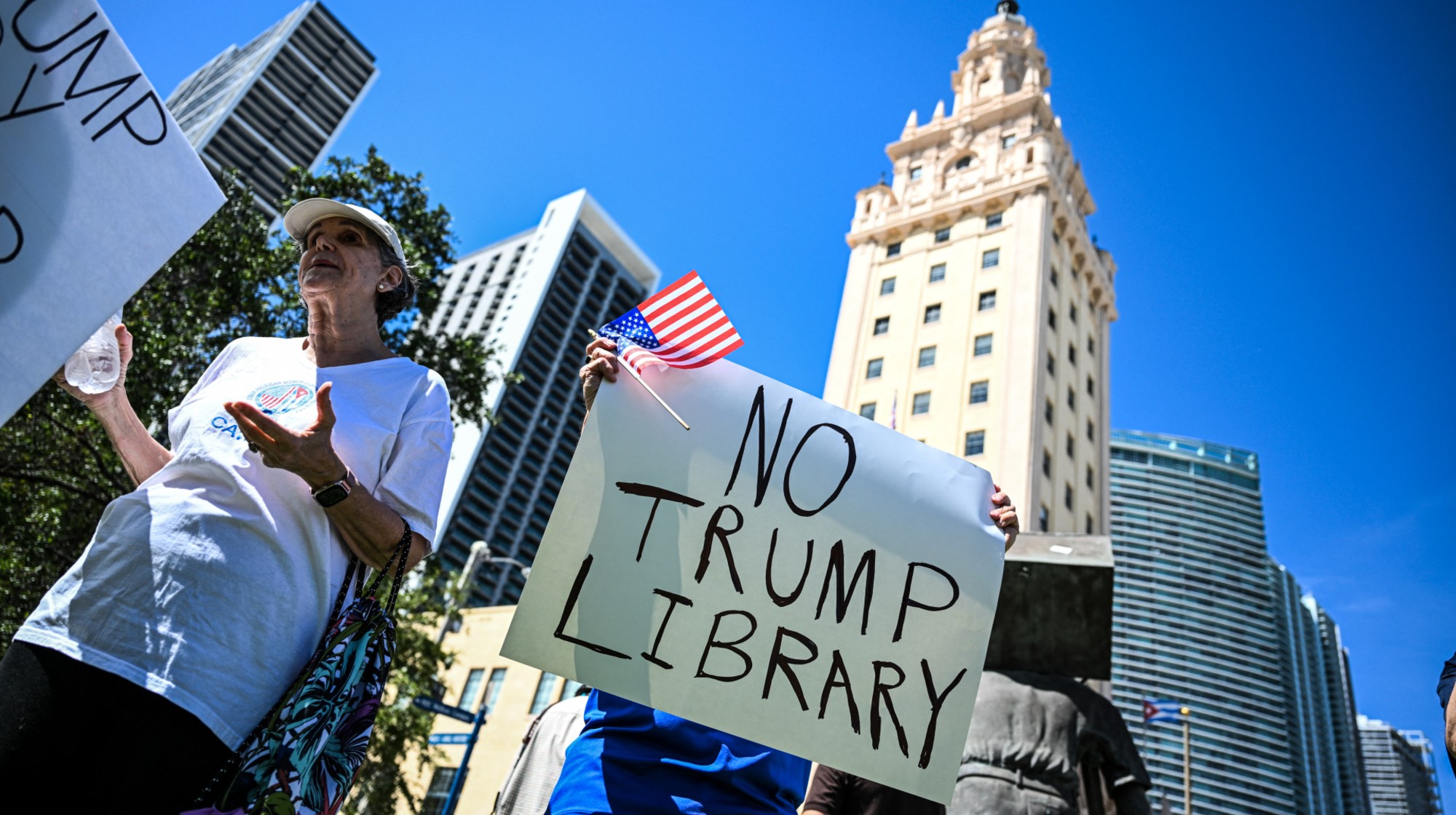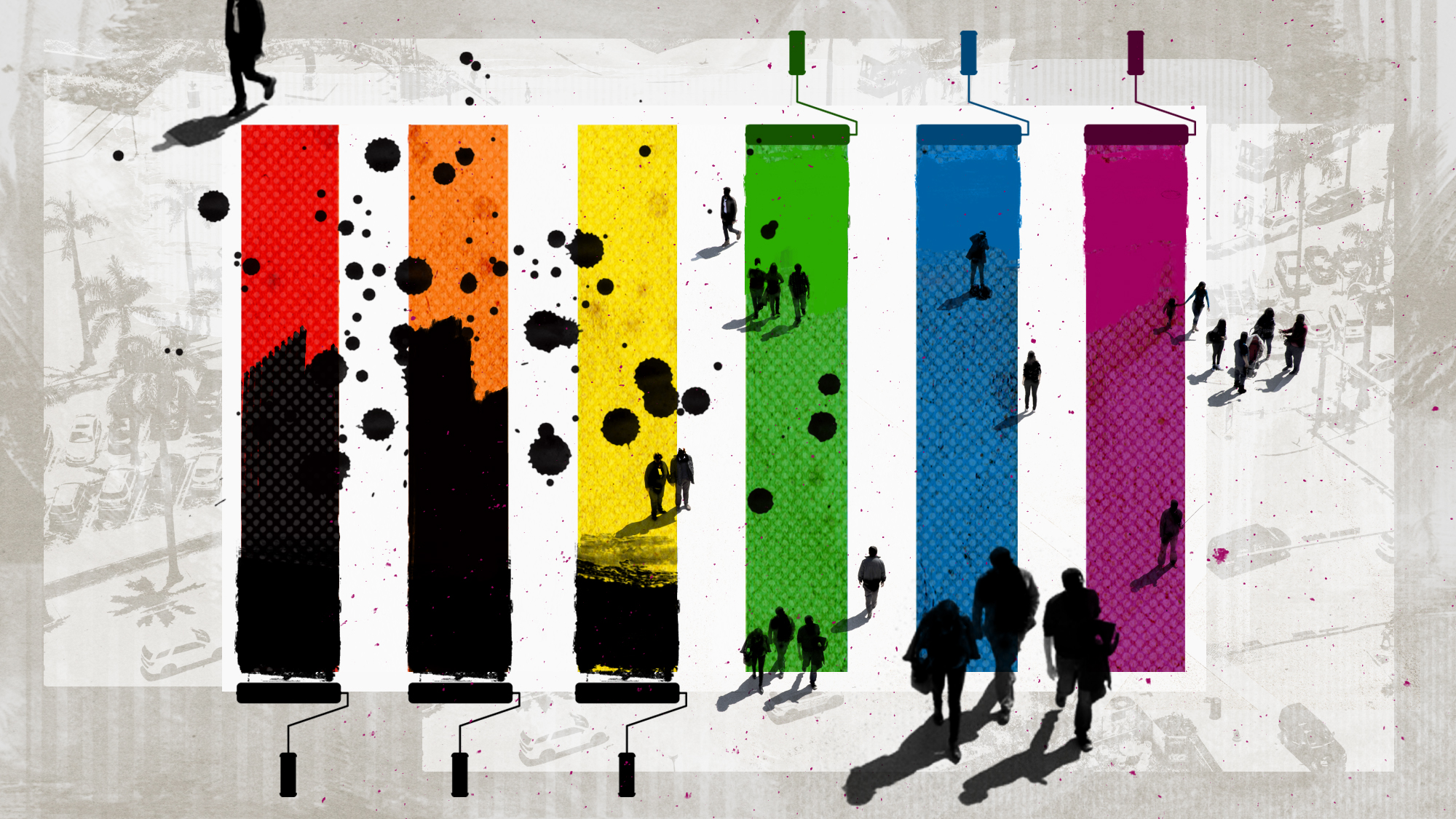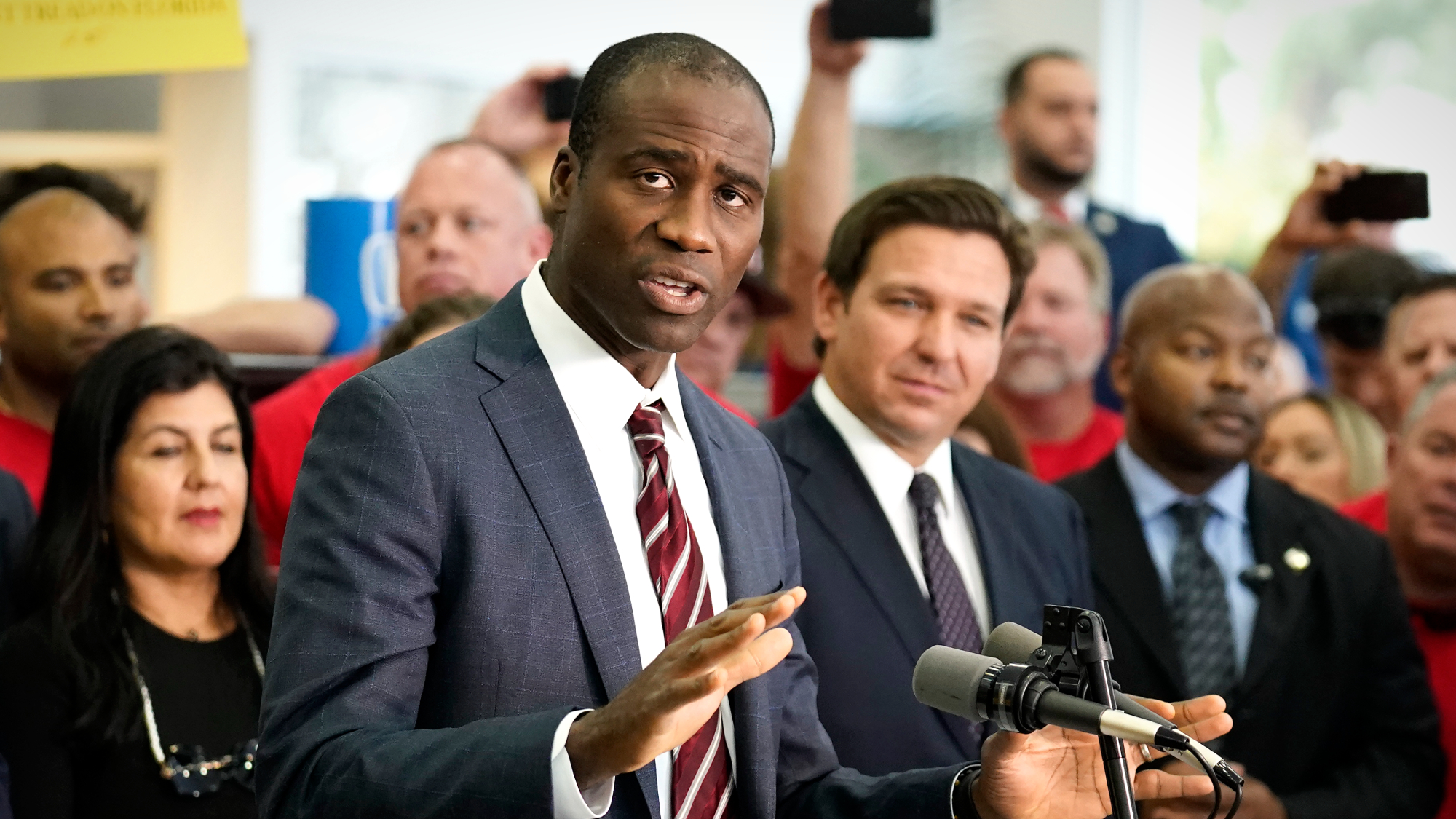The distressing, dysfunctional politics of a world with endless COVID
Get ready for more of the same, only worse


A free daily email with the biggest news stories of the day – and the best features from TheWeek.com
You are now subscribed
Your newsletter sign-up was successful
There was a fleeting moment early on in the COVID-19 pandemic when it was reasonable to think that a dangerous virus spreading across the globe might bolster technocrats in our era of populist attacks on elites and expertise. In a crisis, people would want competent, effective government they can trust. That would create an opening to remind restive voters of how important it is to elect people who know what they're doing and who can make a positive difference when people are dying, economies are buckling, and daily routines are upended by a deadly pathogen.
If you'd told me in late March 2020 that a joint effort between pharmaceutical conglomerates and governments would succeed in devising, testing, and distributing several highly effective vaccines within a year, I would have considered that even more reason to suspect the technocrats would receive a real boost, throwing the populists back on their heels.
But that isn't what's happened.
The Week
Escape your echo chamber. Get the facts behind the news, plus analysis from multiple perspectives.

Sign up for The Week's Free Newsletters
From our morning news briefing to a weekly Good News Newsletter, get the best of The Week delivered directly to your inbox.
From our morning news briefing to a weekly Good News Newsletter, get the best of The Week delivered directly to your inbox.
What's happened, instead, is that only around half of Americans are fully vaccinated, the Delta variant has produced a surge in new cases (mostly among the unvaccinated), and this has stalled and reversed what most of us assumed a few months ago would be the end, or at least the final chapter, of the pandemic. Case numbers, hospitalizations, and deaths are all up across much of the country, in some states surpassing the highest peaks of last winter. Mask mandates are coming back. And the prospect of having to wage an endless war of attrition against COVID, with setbacks followed by gains followed by reversals as new variants emerge and spread and as vaccine boosters are devised and distributed and taken by many but passed over by many others, seems increasingly likely.
The political ramifications of such a new normal are bound to be ugly.
Already we can see its outlines emerging. So-called blue states have higher rates of vaccination on average, and so also a lot fewer new cases of the virus (with the breakout infections that arise usually mild). Yet these are the states where public health officials, local governments, schools, and private businesses are reimposing mask mandates and other restrictions. Red states, meanwhile, tend to have lower rates of vaccinations, with some of them suffering from major surges of new cases, hospitalizations, and deaths. Yet these states are resisting any new mandates or restrictions to prevent the spread of infection.
This isn't what one would hope to see. A world in which COVID never goes away should be one in which Americans come to accept and adjust to a new normal, combining widespread vaccination (and regular booster shots) with selective masking and other public-health restrictions in some settings while also learning to live with somewhat higher risk (relative to the pre-COVID baseline) of catching a serious and sometimes deadly virus. So we'd probably get permanent mask mandates on planes, trains, and other forms of public transportation, but not in schools, for the foreseeable future, along with testing before travel paired with a relaxation of travel restrictions between countries and regions. And so forth.
A free daily email with the biggest news stories of the day – and the best features from TheWeek.com
What we have instead — with different regions and states responding in diametrically opposed ways to the virus — mirrors the country's deepening cultural and political divisions.
The differences aren't simply a function of blue states and regions being more risk averse and red states and regions showing more risk acceptance. The differences follow from a deep disagreement about what warrants fear and what inspires trust or suspicion.
Blue-state Americans prioritize the risk of catching COVID-19 and default to trust in government, doctors, and public health experts. Red-state Americans prioritize the risk of underreported side-effects of the vaccines and default to suspicion of and lack of trust in government, doctors, and public health experts. People in blue regions tend to fear the pathogen and trust in human ingenuity to tame it. People in red regions tend to place greater trust in God or luck than human ingenuity to protect them, and they fear that human efforts to control fate will lead to unacceptable limitations on individual freedom.
Politicians and freelance partisans on both sides of our ideological divides then weaponize these cultural differences for political advantage. Republicans rail against mask and vaccine mandates, lash out at the CDC, and encourage people to rely on personal responsibility and vent their pandemic-related frustrations at Democrats. Democrats respond in kind by attacking those who refuse vaccination, treating red-state governors and other elected officials as punching bags, and laying into conservative media personalities for needlessly prolonging the pandemic by spreading lies and conspiracies.
This doesn't imply parity between the two sides. It's certainly worse to sow skepticism about vaccines that can save lives and are the country's surest and quickest path out of the pandemic. But Democrats aren't as blameless as they like to believe. It might feel like it's only the other side that peddles disinformation and valorizes ignorance while we believe in science and defer to knowledgeable and well-meaning experts. But reality is more muddled.
Take sweeping denunciations of Florida Gov. Ron DeSantis for supposedly murdering the citizens of his own state with performative opposition to mandates and demagogic attacks on public health officials. I certainly wouldn't be indulging in such antics if I were governor of a state in the midst of a serious wave of new COVID cases. Yet it's also true that Florida's vaccination rate slightly surpasses the national average, and the per capita COVID death rate also shows it firmly in the middle of the pack of American states. The truth would appear to be that Florida is suffering at the moment from some unfortunate combination of bad policy and bad luck.
A similar blend of factors may well lead to similar surges other states in different regions of the country, especially those with considerably lower vaccination rates, as the Delta variant spreads further. That's how it's gone with previous waves. Each started in one region before moving onto others and then receding for reasons we don't yet fully understand.
Blaming DeSantis for the current situation in Florida might make Democrats feel good and reinforce the message that voters should never, ever consider casting a ballot for a Republican. But the anger is rooted in a tendentious reaction to what's really happening in the state — which is that the politically ambitious governor is baiting the left into precisely such a reaction in order to reinforce the message that voters should never, ever consider casting a ballot for a Democrat.
That's what the politics of endless COVID is liable to look like — with the same ideological and cultural polarization that prevailed before the pandemic persisting, expanding, and intensifying as anger, exhaustion, frustration, and anxiety mount with the passing months and years. There's just too much political and psychological benefit to blaming ideological opponents for our struggles and suffering. Most people will find the temptation too alluring to resist.
Of course it's possible that things will de-escalate with time as each side comes to recognize the shortcomings of its own predispositions. Michelle Goldberg recently expressed well-justified irritation with the FDA for dragging its feet in approving COVID vaccines for children. Such objections to the way public health authorities are handling the pandemic could become widespread in blue states and regions if persistent restrictions lead to further economic stagnation and signs of psychological and social harm for both children and adults. Red states and regions could likewise grow fed up with widespread loss of life and debility from an illness that state and local governments steadfastly refuse to respond to in any kind of systematic way.
Yet if we've learned anything over the past couple decades of American politics, it's that de-escalation is easier to imagine than to implement. That's because our differences are real and deep, and because too many people, factions, and industries benefit from keeping the country on a knife's edge. And now the pandemic has provided all of them with plenty of additional material to keep it that way.
That points toward a future of continued high-voltage animosity, with the parties defining themselves by their mutual hatred for each other, and each of them seeking to take the country in its own distinctive direction that wholly rejects the preferences and cultural assumptions of the other on the grounds that they alone pose an existential threat to the polity. Adding a potentially deadly virus to this volatile dynamic only raises the stakes and increases the likelihood that our vitriolic political feuds will move beyond rhetorical incitement, spilling over into the kind of real-world conflagrations that broke out during the summer and fall of 2020 and reached truly alarming proportions on Jan. 6, 2021.
Which is why the politics of endless COVID is likely to be so distressing and dysfunctional — because the last thing America needs in this period of maximal enmity is something even more important and divisive to fight about.
Damon Linker is a senior correspondent at TheWeek.com. He is also a former contributing editor at The New Republic and the author of The Theocons and The Religious Test.
-
 Can Europe regain its digital sovereignty?
Can Europe regain its digital sovereignty?Today’s Big Question EU is trying to reduce reliance on US Big Tech and cloud computing in face of hostile Donald Trump, but lack of comparable alternatives remains a worry
-
 The Mandelson files: Labour Svengali’s parting gift to Starmer
The Mandelson files: Labour Svengali’s parting gift to StarmerThe Explainer Texts and emails about Mandelson’s appointment as US ambassador could fuel biggest political scandal ‘for a generation’
-
 Magazine printables - February 13, 2026
Magazine printables - February 13, 2026Puzzle and Quizzes Magazine printables - February 13, 2026
-
 The billionaires’ wealth tax: a catastrophe for California?
The billionaires’ wealth tax: a catastrophe for California?Talking Point Peter Thiel and Larry Page preparing to change state residency
-
 Bari Weiss’ ‘60 Minutes’ scandal is about more than one report
Bari Weiss’ ‘60 Minutes’ scandal is about more than one reportIN THE SPOTLIGHT By blocking an approved segment on a controversial prison holding US deportees in El Salvador, the editor-in-chief of CBS News has become the main story
-
 Has Zohran Mamdani shown the Democrats how to win again?
Has Zohran Mamdani shown the Democrats how to win again?Today’s Big Question New York City mayoral election touted as victory for left-wing populists but moderate centrist wins elsewhere present more complex path for Democratic Party
-
 Millions turn out for anti-Trump ‘No Kings’ rallies
Millions turn out for anti-Trump ‘No Kings’ ralliesSpeed Read An estimated 7 million people participated, 2 million more than at the first ‘No Kings’ protest in June
-
 Miami Freedom Tower’s MAGA library squeeze
Miami Freedom Tower’s MAGA library squeezeTHE EXPLAINER Plans to place Donald Trump’s presidential library next to an iconic symbol of Florida’s Cuban immigrant community has South Florida divided
-
 Florida wages crosswalk war on public displays of pride
Florida wages crosswalk war on public displays of prideIN THE SPOTLIGHT Gov. Ron DeSantis' campaign comes for colorful crosswalks, as Florida residents engage in guerrilla graffiti as a form of resistance
-
 Florida aims to end all state vaccine requirements
Florida aims to end all state vaccine requirementsSpeed Read Health Secretary Robert F. Kennedy Jr. continues to cut vaccine access and install anti-vaccine activists at the FDA and CDC
-
 Ghislaine Maxwell: angling for a Trump pardon
Ghislaine Maxwell: angling for a Trump pardonTalking Point Convicted sex trafficker's testimony could shed new light on president's links to Jeffrey Epstein
